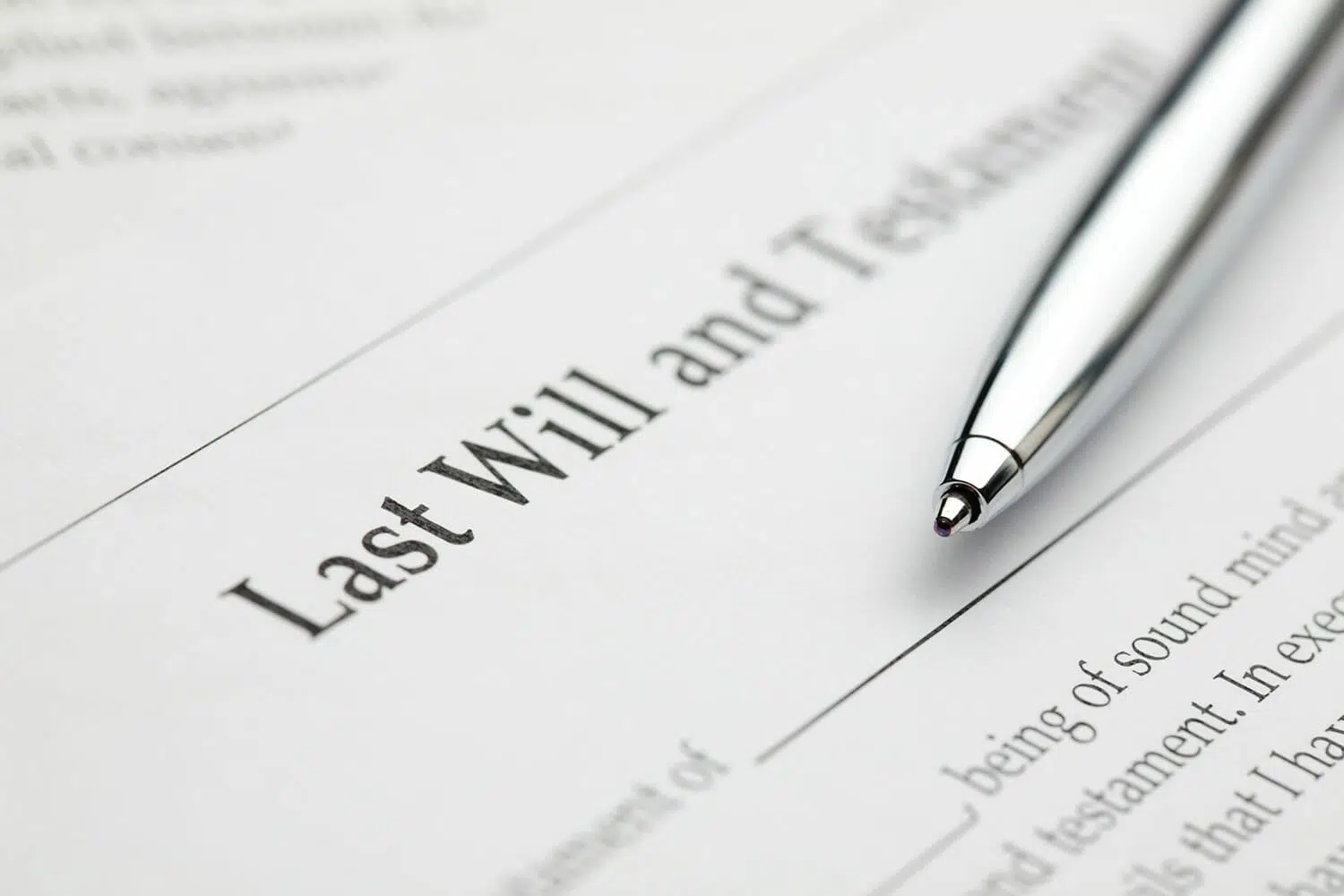How will your life change after a divorce? Much like stopping smoking, your body will know immediately that you have shed some of the worry, stress, and apprehension you have been bottling up for months or possibly years. Other parts of your world change, too, like your taxes, finances, savings, and estate. One matter to tend to immediately: updating your will.
So You’re Not Wealthy Enough for a Will?
Some Virginia men think that wills are really for fat cats. While this is not true, the reasons for thinking this are common:
- My property, real estate and personal effects are not worth much
- Probate is just for millionaires; my finances are so simple a court can work it out
- So what if I die intestate; Virginia will see that my family is provided for
- Virginia has no inheritance tax or estate tax, so I don’t need to plan for my children’s needs
Unfortunately, most of these beliefs are false. Wills are necessary to make clear your wishes regarding all your finances and your children. Without a will, your estate (all your real property, liquid assets, and personal property) pass to your spouse.
Most sensible and responsible fathers in Virginia recognize the value of a personal will so that their children are properly cared for in the event of the fathers’ death. During marriage, your property does pass to your wife, but a divorce has, shall we say, a chilling effect on the will.
Divorce “Does Her In,” Technically
Under Code of Virginia § 64.2-412, your divorce is a virtual death. Your ex-wife is, under the law, presumed to predecease you and any inheritance intended for her passes by her and goes to the next inheritor in line, generally your children. This is not just us using a figure of speech or being dramatic. Here is the important section:
Property prevented from passing to a former spouse because of revocation pursuant to subsection B shall pass as if the former spouse failed to survive the testator.
From a legal perspective, the divorce did your wife in. You may daydream of something like that, but the divorce virtually accomplished it.
Review your will carefully to ensure that your children do stand next in line to inherit your property, and that you have not left the will open so that your ex-wife alone is named as the inheritor.
The Best Interests of the Children
Virginia law is replete with righteous concern for the best interests of the Commonwealth’s children. Does your post-divorce will reflect this? Have you updated custody and guardianship to reflect your parted ways? As The Balance points out, during the year between separation and the final divorce decree, your death may leave your children’s future in the court’s hands, against your wishes.
Debts & Your Will
Under Virginia law, your debts must be disposed of before your children can inherit your 1964 Chevy Malibu or your 1970 Sunset Malibu Barbie (hey, we’re not judging). After divorce, your ex-wife is supposed to have an equitable share of the marital debt, leaving you with your equitable share.
Revisiting your will to ensure debt impacts your children as little as possible is another good idea.
Watch Out for Unhealthy Moves
Most wills today include health documents, such as:
- Do Not Resuscitate Orders (DNRs)
- Healthcare Power of Attorney
- Living Will
- Advance Medical Directive
- Healthcare Proxy
If you leave your ex-wife as the “plug puller” and your divorce was particularly contentious, you give her significant power over your life, if you become incapacitated. Forbes magazine suggests even during the divorce process that you revise your will and ancillary documents to appoint someone … less possibly vindictive … for oversight of your health matters.
Intestate in Virginia: Dying Without a Will
Intestate is not the same as “interstate,” as in the highways. Intestate means you died without a will. Virginia’s own courts provide an extremely helpful guide to wills, and part of the guide reads:
If a person dies without a will, Virginia law provides a course of descents as follows (after payment of funeral expenses, debts and cost of administration):
- all to the surviving spouse, unless there are children (or their descendants) of someone other than the surviving spouse in which case, one-third goes to the surviving spouse and the remaining two-thirds is divided among all children.
- if no surviving spouse, all passes to the children and their descendants.
The two portions of the law, Virginia Code § 64.2-412 and § 64.2-200, outline the course of descents, ensure that your children will inherit your estate after divorce if you leave no will.
An existing, older will that does not reflect the divorce can slow the entire process down, robbing your children of inheritance they may need quickly after your passing for things like taxes, college tuition, mortgage payments on their home, or even basics for living, like groceries and clothing.
Other Assets to Consider in Your Will
Virginia provides for a long list of assets that can readily pass into survivors’ hands (and bank accounts) without regard for probate. As part of your efforts to update your will and other financial instruments, you should update beneficiaries of these, say experts at Smart Asset:
- Life insurance policies
- Retirement accounts, like IRAs and 401(k)s
- Accounts that are transfer-on-death or payable-on-death
- Joint tenancy property
- Living trust property
While your ex-wife may be entitled to equitable distribution of some of these instruments, what remains as yours must have a clear, current beneficiary, presumably your own children.
For all aspects of Virginia family law, please contact us at The Firm For Men by calling 757-383-9184. You may also contact us online. We can answer your questions about separation, divorce, and other family law issues. We can also provide wise counsel on the effects of divorce, including updating your will and getting your financial affairs in order.

